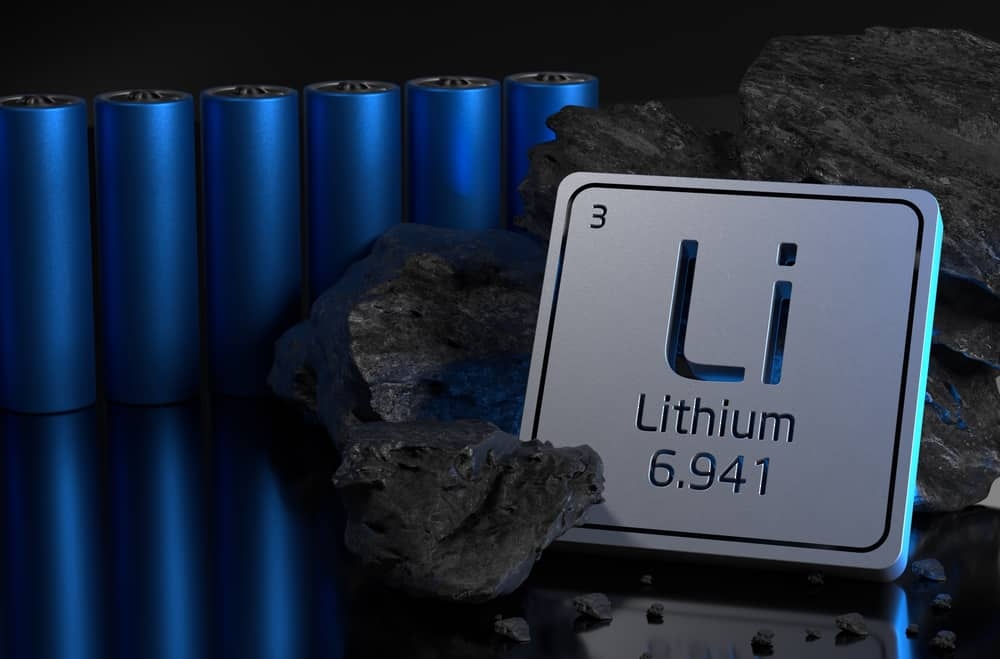News
New Invention Harvests Lithium From Salt Water – Here’s Why This Is Important
A revolutionary leap in sustainable technology is here – scientists from the University of California, Berkeley, and Nanjing University have designed a solar-powered device that can extract lithium from salty water with minimal environmental impact.

A revolutionary leap in sustainable technology is here – scientists from the University of California, Berkeley, and Nanjing University have designed a solar-powered device that can extract lithium from salty water with minimal environmental impact.
This innovation is set to transform lithium mining, offering a greener path to fuel the world’s surging demand for rechargeable batteries in electric vehicles, electronics, and renewable energy systems.
How It Works
The device uses a solar transpiration-powered process inspired by plants that absorb ions from salty environments. It incorporates a hierarchically structured membrane system with layers dedicated to evaporation, nanofiltration, and lithium storage.
By relying solely on sunlight, it eliminates the need for external energy sources, making it a carbon-neutral solution. The device captures lithium ions selectively, separating them from brines containing as little as three milligrams of lithium per litre. Under ambient conditions, each module can extract approximately 33.2 milligrams of lithium per square meter daily. Arrays of these devices can float on existing brine ponds used in lithium mining.
Why This Matters
- Environmental Impact: Traditional lithium mining is resource-intensive and environmentally damaging, often involving substantial land use and greenhouse gas emissions. This solar-powered alternative could dramatically reduce the environmental footprint by avoiding fossil fuel dependence and minimising waste.
- Growing Lithium Demand: With global lithium demand projected to triple by 2030 due to the EV boom and battery storage needs, sustainable extraction methods are vital. Current reserves may not meet this demand without innovative technologies.
- Scalability and Accessibility: The device is scalable, making it feasible for use in diverse saline environments such as seawater or brine lakes like the Dead Sea. This approach broadens the spectrum of extractable lithium sources.
- Economic Viability: The passive design significantly lowers operational costs compared to conventional extraction methods, which require intensive energy inputs. Researchers emphasise the potential for further efficiency improvements as membrane technology evolves.
Lithium’s Strategic Importance
Lithium is a linchpin for decarbonisation efforts. It underpins energy storage technologies vital for transitioning to renewable energy grids and electrified transport systems. The World Bank – as per a recently published report – estimates a 500% increase in mineral demand for clean energy technologies by 2050, with lithium leading the charge.
Future Outlook
While this technology is a step forward, challenges remain in optimising membrane efficiency and scaling up production to compete with established methods. A comprehensive techno-economic analysis is needed to validate its practicality for large-scale deployment.
However, the innovation does highlight the potential for harmonising industrial needs with environmental sustainability, paving the way for a greener lithium supply chain.
-

 Banking & Finance2 months ago
Banking & Finance2 months agoOman Oil Marketing Company Concludes Its Annual Health, Safety, Environment, and Quality Week, Reaffirming People and Safety as a Top Priority
-

 News2 months ago
News2 months agoJamal Ahmed Al Harthy Honoured as ‘Pioneer in Youth Empowerment through Education and Sport’ at CSR Summit & Awards 2025
-

 OER Magazines2 months ago
OER Magazines2 months agoOER, December 2025
-

 News2 months ago
News2 months agoAI Security Conference 2025 Hosted by Securado Highlights the Changing Cybersecurity Landscape
-

 Insurance1 month ago
Insurance1 month agoSupporting Community Wellness: Liva Insurance Sponsors Muscat Marathon 2026 with Free Health Checkups
-

 Interviews1 month ago
Interviews1 month agoEXCLUSIVE INTERVIEW: TLS Rebranding Marks Strategic Leap Toward Innovation, Sustainability & Growth
-

 Insurance4 weeks ago
Insurance4 weeks agoLiva Insurance Supports Community Wellness Through “Experience Oman – Muscat Marathon 2026”
-

 Investment2 weeks ago
Investment2 weeks agoLalan Inaugurates Its First Overseas Manufacturing Facility, Marking Sri Lanka’s First Investment in SOHAR Freezone





























